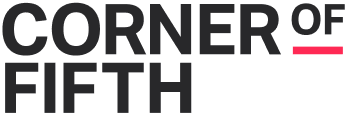
Health-conscious consumers are redefining their relationships with alcohol, giving niche food and wellness brands a real opportunity to become mainstream.
California Sober, or Sober Curious, lifestyles have been on the rise as consumers (especially Gen Z and Millennials) put an emphasis on improving mental and physical health. And while ‘mindful drinking’ may sound catchy or a mirror of Dry January challenges these lifestyles are hardly a trend, having already proved the cultural shift has staying power — which makes it a huge opportunity for established and emerging brands.
Going Dry
Important to understand is that the sober curious community is not completely “going dry” or claiming sobriety. Instead, these consumers opting for the new sober adjacent lifestyles are cutting back significantly, often choosing non-alcoholic drinks. Put simply, these lifestyles are mostly dry but do allow for some social drinking, depending on the person, and supplementing with other substances like cannabis.
Experts, like Hilary Sheinbaum, author of “Going Dry” the workbook, how-to guide to drinking less and living more, has attributed much of the spike seen with the movement to the reevaluation that people were having with their relationship with alcohol post-pandemic. Also significant is the increased awareness around the negative effects of alcohol, including an uptick in social media users sharing their journeys across platforms.
Notably, the movement continues to be a huge opportunity for brands. Today, with more consumers looking for alternatives, large retailers like Whole Foods offer tons of nonalcoholic lines which can also be easily ordered on Amazon. And it has become commonplace for restaurants and bars to include nonalcoholic options on menus. By being placed near traditional alcohol, many nonalcoholic beverages have made the jump from niche to mainstream.
A Wellness Movement
Emphasizing the root of the movement being in wellness, the brand Kin Euphorics, which launched in 2017 with products made with adaptogenic herbs and roots, nootropics and botanicals, has been popular for its promise to alleviate stress, enhance brainpower and mood and still giving a sort of buzz. Cann, the beverage brand that spikes seltzer with weed, offers a similar solution with no artificial sweeteners or preservatives.
Other popular nonalcoholic beverage brand options also include Ghia, Pentire, Figlia, Wilfred’s and De Soi. Brands like Loverboy (the spirits company made popular on Bravo’s Summer House) have even begun offering nonalcoholic options citing experiencing the need firsthand from friends and family.
Beyond beverages, the cannabis market has taken off during the rise of Cali-sober lifestyles with a surge of product launches. Many of the most popular brands in the space have been led by celebrities who have served as both founders and supporters. Travis Barker, Gwyneth Paltrow, Bella Thorne, Whitney Port, and Seth Rogen are among some of the most vocal in the space.
Products range from Barker’s Barker Canna Co. which offers edibles to Martha Stewart’s line of CBD-infused wellness gummies to Port’s microdosable edible brand The High Confectionary. Rogan’s brand Houseplant offers smoking accessories and even home goods for the traditional user.
The rise of California Sober and Sober Curious lifestyles reflects a growing emphasis on mental and physical well-being, particularly among Gen Z and Millennials. This movement encourages moderation and mindful consumption, often opting for non-alcoholic alternatives and exploring substances like cannabis.
This shift has created a substantial opportunity for brands to offer non-alcoholic beverages, cannabis products, and wellness-focused alternatives, transforming the market and reshaping consumer preferences.

